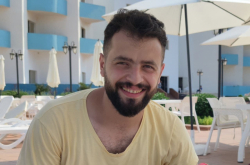History of cooperation
The Siberian Coal Energy Company (SUEK) ranks amongst the world’s ten largest coal manufacturers in terms of reserves and sales volume. The company supplies thermal coal to more than a thousand partners in Russia, as well as to the Atlantic and Asia-Pacific regional markets.
The cooperation between ITMO University and SUEK started in 2014 and has been ongoing for the past four years.
“The way we work is, the company makes a request of what they want to give to their specialists. For example, financial administration skills, courses on leadership or project management,” says Iuliia Kalnichenko, tutor at the Faculty of Technological Management and Innovations. “We look for suitably qualified teachers and brief them on the specifics of the audience they’ll be working with. We get different requests each time; this year, the focus is on leadership and corporate governance.”

To become part of these professional development courses, the company’s staff participate in the internal corporate education events such as workshops, conferences, and contests.
Course program
The courses take place during two weeks with six to eight hours of studies per day, depending on how busy the daily cultural program is. This year’s course consists of classes on ‘Resource Management’, ‘Strategic Corporate Management’, and ‘Emotional Intelligence’, amongst others.
“Our aim is to make our employees prepared for changes coming their way,” comments Anatoly Fomin, Advisor to the Director of Human Resources at the Siberian Coal Energy Company. “That is because the tasks that our company, industry and country are faced with are always changing, and it’s important to be able to keep up with the progress. People who can do that solve these tasks faster and adapt to new circumstances more easily, benefiting the company at large. If an enterprise doesn’t develop, it loses in competitive performance and can’t pay its workers a decent salary.

This time, SUEK’s specialists worked on their communication skills, learning how to build relationships and develop correct responses to conflicts.
“These skills are essential to have in life; they are often taken for granted, and wrongly so: people need to be taught these things. Some have them in their blood, but it’s very rare. Others need to work on cultivating themselves. The mining industry is powered by stout-hearted lads who have to fix equipment in summer heat and winter frost, often with the help of a swear word and a sledgehammer. They could really benefit from this training,” admits Anatoly.
The classes are taught by experienced practitioners from ITMO University, the Faculty of Technological Management and Innovations in particular. According to one course instructor, ITMO University lecturer Andrei Maiboroda, he changes the way he presents the course material to tailor it to the professional background of SUEK’s specialists.
“I do my best to adapt, to illustrate my lectures with examples that are familiar to the audience,” shares Andrei. “My usual students are young people used to the life in urban environments. The specialists from SUEK, on the other hand, work at real-world plants located in industrial villages. The way they communicate with each other corresponds to their line of work and therefore can be rather indecorous. But that is why my courses on ‘Emotional Intelligence’ and ‘Proeffective Communication’ are so useful to them. And they are all very talented and quick to learn, I really enjoy our lessons together.”

If they’re late to the class or miss it altogether, the workers have to write an explanation letter. One case of unexplained absence means that the person playing truant will no longer be able to participate in such educational events.
“There are no other options,” explains Anatoly Fomin. “These people work at high-threat production plants. If we fail to maintain the discipline, there’ll be accidents and injuries on end. Discipline comes above everything in our line of work. An employee may be talented and everything, but if they’re not ready or willing to obey the rules, they don’t suit this profession. There are lives at stake. So discipline is a crucial element of our corporate culture. I get it that you may want to unwind: it’s sunny, there are plenty of nice cafes, you’re in good company. By all means, do, but only after 8pm, and know that come 9am next morning, you have to already sit in the class ready for the day’s worth of studies.”
Plans for the future
Next year, the Siberian Coal Energy Company plans to once again host their professional training activities at ITMO. This time, they will be based on the theory of inventive problem solving, a set of methods for effective decision-making developed by a Soviet scientist Genrich Altshuller. The other plans for the future include adding machine learning and Big Data to the courses’ agenda.

Apart from that, SUEK aims to introduce a new internal contest for its employees, which will single out the best ideas on improving the manufacturing process. The participants will divide themselves into teams to create their bespoke business plans. Over the course of six months, they will be deciding on their suggestions for improvement of the company and working on a step-by-step action plan to achieve the proposed goals. In this, they will be helped by ITMO University lecturers, who will explain the nitty-gritty of the financial theory and economics as part of the educational webinars. The contest will culminate with the participants defending their projects before the company’s top management.
“What is the essence of entrepreneurship?” asks Anatoly Fomin. “It’s when you find an idea, develop it and sell it to someone else. In SUEK, we practice internal entrepreneurship: the company is happy to buy good ideas from its specialists because it understands the importance of development. Our people already know the industry specifics from the inside out and are aware of which suggestions will work out and which won’t. They have experience. All is there to do is to teach them how to package and defend their ideas, and we’ll get valuable workers immersed in the company’s production cycle. If we add respect, additional pay and opportunity of career growth to the mix, they’ll be interested to stay in the company for the long haul, because they will realize that they matter. Without ITMO University, it would be hard to pull this project off.”





